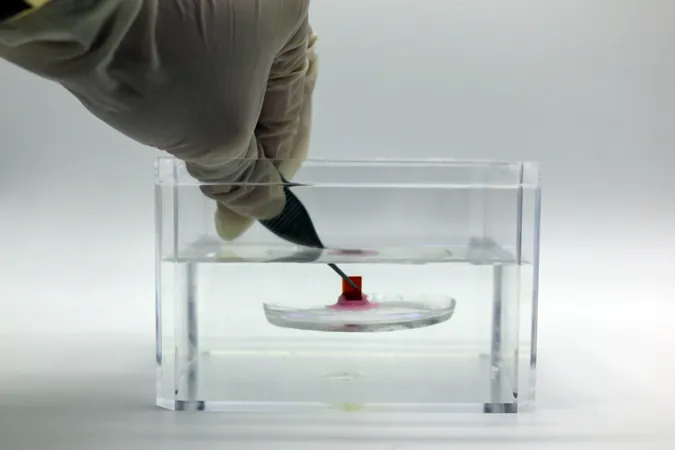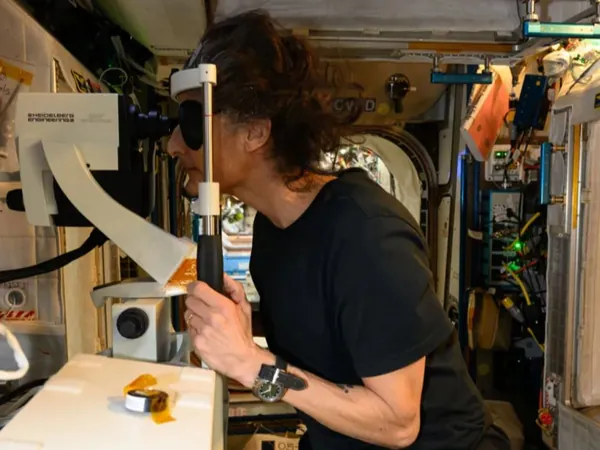
Can We Capture Intelligence Through a Lens?
2025-07-06
Author: Noah
The Intriguing Intersection of Imaging and Intelligence
Imagine being able to photograph intelligence just as easily as snapping a picture of a flower or a friend. Surprisingly, this isn’t as far-fetched as it seems. Thanks to advanced technologies like functional magnetic resonance imaging (fMRI), scientists can create vivid maps of brain activity, akin to a geographical layout of the mind.
fMRI is much more than a camera; it detects the brain's intricate activities and assesses the entropy—or disorder—of this complex organ. Entropy fluctuates based on cerebral blood flow and oxygen consumption, revealing conditions ranging from brain trauma to tumors.
Mapping Emotions and Behaviors
Recent years have sparked curiosity in using fMRI to delve deeper into human emotions and behaviors. What happens in our brain when we experience the excitement of a concert or the joy of a romantic evening? Increased blood flow to specific brain regions triggers the release of dopamine and endorphins, enhancing our sensory experiences.
The Link Between Intelligence and Brain Activity
But why not take this a step further? A groundbreaking study published in *Plos One* has shown that fMRI can correlate brain activity, specifically areas of higher entropy, with intelligence test scores. Researchers revealed this intriguing connection in a group of 892 Americans, focusing on popular tests like the Shepley Vocabulary and the WAIS Matrix Reasoning.
They found that the prefrontal cortex, lower temporal lobes, and cerebellum exhibited heightened activity in participants with higher intelligence levels. Essentially, a brain with more entropy is more dynamic and adept at processing information, while lower entropy correlates with reduced cognitive function.
Decoding the Complexity of Intelligence
However, defining intelligence is anything but straightforward. Are we talking about logical-mathematical reasoning, musical ability, or even mechanical intelligence? There are up to 120 different types of intelligence, complicating our understanding.
The study from *Plos One* has opened a fascinating avenue but acknowledges the need for further research. The correlation between brain entropy and intelligence is still weak, and we must account for genetics and environmental influences.
Future Prospects in Brain Imaging
Despite its limitations, the *Plos One* study suggests exciting potential applications. Imagine if fMRI could one day assist in diagnosing mental health conditions such as depression, PTSD, or autism—it could revolutionize our approach to psychiatric disorders.
Currently, the degree of entropy observed correlates with intelligence, particularly in the frontal cortex, which governs planning and emotional control. This raises a provocative question: if science unlocks the secret to enhancing intelligence through genetic engineering, should we pursue it? The ethical implications of such advancements will undoubtedly require careful consideration from philosophers, lawmakers, and society at large.
Conclusion: The Future of Understanding Intelligence
While we can seemingly photograph the workings of the intelligent mind today, the journey is just beginning. With ongoing research and technological advancements, we may soon uncover the deeper mysteries of human cognition that lie ahead.









 Brasil (PT)
Brasil (PT)
 Canada (EN)
Canada (EN)
 Chile (ES)
Chile (ES)
 Česko (CS)
Česko (CS)
 대한민국 (KO)
대한민국 (KO)
 España (ES)
España (ES)
 France (FR)
France (FR)
 Hong Kong (EN)
Hong Kong (EN)
 Italia (IT)
Italia (IT)
 日本 (JA)
日本 (JA)
 Magyarország (HU)
Magyarország (HU)
 Norge (NO)
Norge (NO)
 Polska (PL)
Polska (PL)
 Schweiz (DE)
Schweiz (DE)
 Singapore (EN)
Singapore (EN)
 Sverige (SV)
Sverige (SV)
 Suomi (FI)
Suomi (FI)
 Türkiye (TR)
Türkiye (TR)
 الإمارات العربية المتحدة (AR)
الإمارات العربية المتحدة (AR)